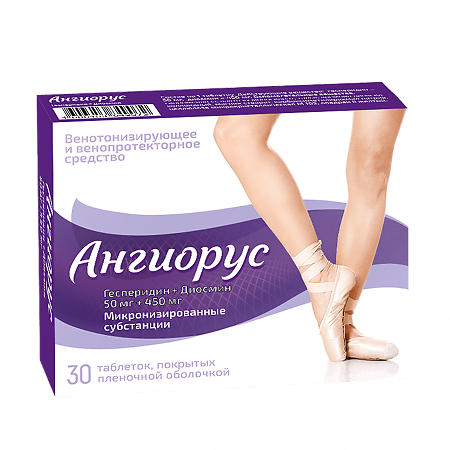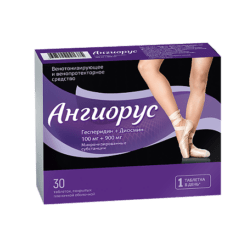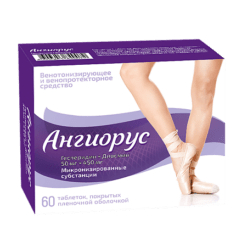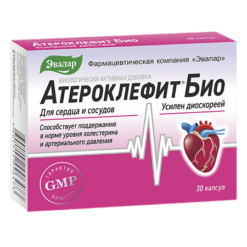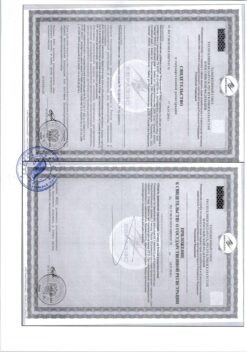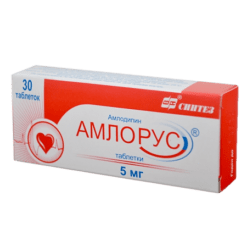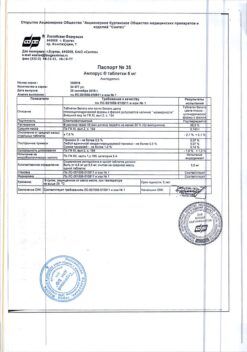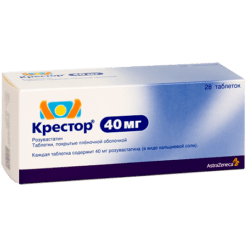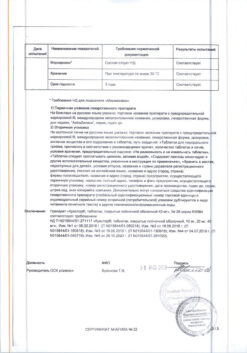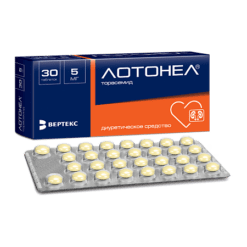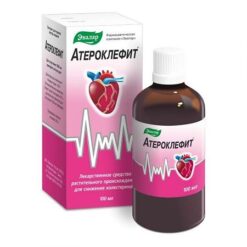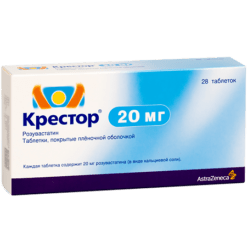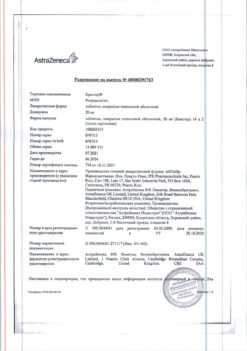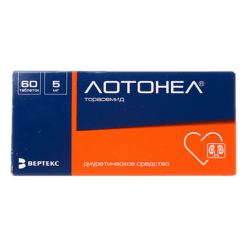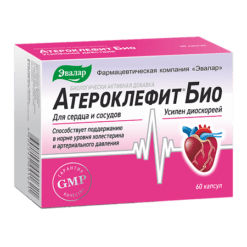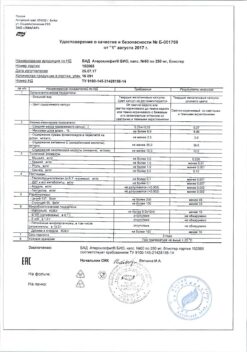No products in the cart.
Angiorus, 50 mg+450 mg 30 pcs
€16.96 €14.13
Description
Pharmacotherapeutic group: venotonic and venoprotective agent.
ATX code: C05СА53
Pharmacological properties
Pharmacodynamics
The drug is a combination of micronized substances of diosmin and hesperidin. This combination has venotonic and angioprotective effect. It reduces venous distensibility and venous stasis, reduces capillary permeability and increases their resistance, improves microcirculation and lymph outflow. With systematic use it reduces severity of clinical manifestations of chronic venous insufficiency of lower limbs of organic and functional nature.
Pharmacokinetics
The main excretion of the drug is through the intestine. The kidneys excrete on average about 14% of the administered amount of the drug. The half-life period of excretion is 11 hours.
The drug is actively metabolized, which is confirmed by the presence of phenolic acids in urine.
Indications
Indications
Therapy of symptoms of chronic vein disease (elimination and relief of symptoms).
Therapy of symptoms of venous and lymphatic insufficiency:
Therapy for manifestations of venous-lymphatic insufficiency:
Symptomatic therapy of acute and chronic hemorrhoids.
Active ingredient
Active ingredient
Composition
Composition
How to take, the dosage
How to take, the dosage
Overly, with meals.
The recommended dose for veno-lymphatic insufficiency is 1 tablet per day, preferably in the morning, with a meal.
The duration of treatment may be several months (up to 12 months). If symptoms recur, the course of treatment may be repeated according to a physician’s recommendation.
The recommended dose for acute hemorrhoids is 3 tablets per day (1 tablet in the morning, afternoon and evening) for 4 days, then 2 tablets per day (1 tablet in the morning and evening) for the next 3 days.
The recommended dose for chronic hemorrhoids is 1 tablet daily with meals.
Special Instructions
Special Instructions
Consultation with a physician is recommended before starting to use the drug.
In case of exacerbation of hemorrhoids the prescription of the drug does not replace the specific treatment of other anal disorders. The duration of treatment should not exceed the periods specified in the section “Dosage and administration”. If symptoms do not disappear after the recommended course of therapy, proctologic examination should be performed and the therapy used should be revised.
In the presence of venous circulatory disorders, the maximum effect of treatment is achieved by combining therapy with a healthy (balanced) lifestyle: it is advisable to avoid long periods of exposure to the sun, prolonged periods of standing on feet and it is also recommended to reduce excessive body weight. Walking and, in some cases, wearing special stockings help to improve blood circulation.
If your condition worsens or does not improve with treatment, consult a physician immediately.
The drug does not affect the ability to drive or engage in other potentially dangerous activities requiring increased concentration and rapid psychomotor reactions.
Contraindications
Contraindications
Hypersensitivity to the active or excipients in the drug.
The drug is not recommended for women during breastfeeding.
Rare hereditary diseases such as galactose intolerance, lactase deficiency or glucose-galactose malabsorption.
Side effects
Side effects
The incidence of adverse reactions is presented according to the WHO classification: very common (â¥1/10), common (â¥1/100, < 1/10), infrequent (â¥1/1000, < 1/100), rare (â¥1/10000, < 1/1000), very rare (< 1/10000), frequency unknown (frequency cannot be determined based on available data).
Central nervous system disorders: rare – dizziness, headache, general malaise.
The digestive system: frequent – diarrhea, dyspepsia, nausea, vomiting; infrequent – colitis; frequency unknown – abdominal pain.
Allergic reactions: rare – skin rash, skin itching, urticaria; frequency unknown – isolated swelling of the face, lips, eyelids. In exceptional cases, angioedema.
In case of any of the above adverse reactions or adverse reactions not specified in these instructions for medical use of the drug, a physician should be consulted.
Pregnancy use
Pregnancy use
Pregnancy
There have been no animal experiments showing teratogenic effects. To date, there have been no reports of any side effects when using the drug in pregnant women.
Breast-feeding
Because of the lack of data concerning excretion of the drug in the breast milk, it is not recommended for women during the breast-feeding period.
Impact on reproduction
Reproductive toxicity studies have shown no effect on reproductive function in rats of either sex.
Similarities
Similarities
Additional information
| Conditions of storage | At a temperature not exceeding 30 ° C. Keep out of reach of children. |
|---|---|
| Manufacturer | Sintez OAO, Russia |
| Medication form | pills |
| Brand | Sintez OAO |
Other forms…
Related products
Buy Angiorus, 50 mg+450 mg 30 pcs with delivery to USA, UK, Europe and over 120 other countries.

